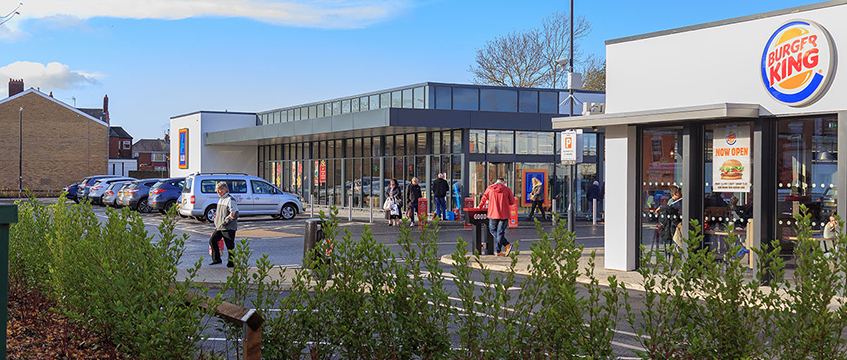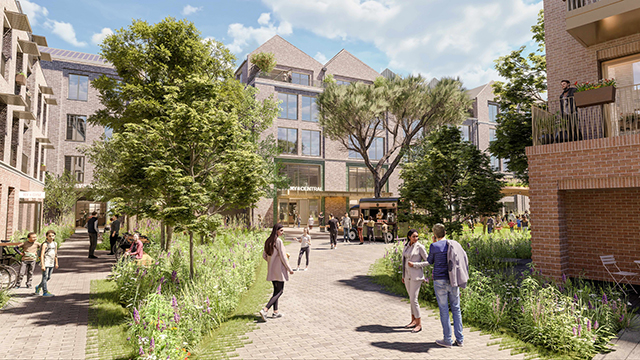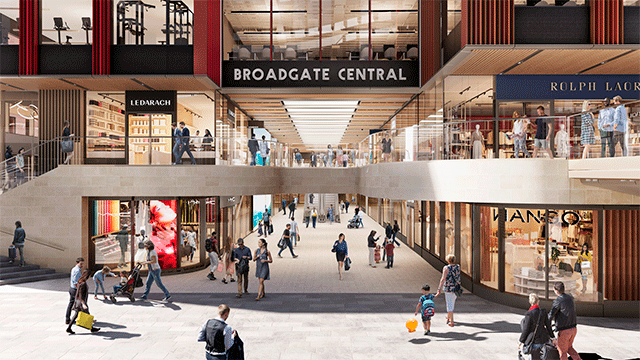NewRiver REIT has turned to comprehensive scenario tests for rental cashflows to ensure it can withstand any potential disruption in the retail sector during an economic downturn.
For chief executive Allan Lockhart, stress-testing the portfolio means that the team is now certain it will be able to mitigate the near-term financial impact of rising inflation and interest rates, and that it is unlikely to suffer any significant income disruption. “The balance sheet is in great shape,” Lockhart told EG.
The last time the REIT modelled worst-case scenarios for rental income was at the beginning of the Covid-19 pandemic, when the government enforced national lockdowns and introduced the moratorium on forfeiture for commercial rent arrears. In what was “a scary time” for the industry, Lockhart said, “We really wanted to evaluate what the financial implication was going to be on our business.”
The results suggested the company’s balance sheet was sufficiently strong to withstand the challenges of operating during the Covid crisis without having to raise additional capital from shareholders. It was a finding that “ultimately proved to be correct”, said Lockhart.
When the likelihood of a recession intensified in recent months, Lockhart was again keen to test out the financial implications for the business in the event of a 2023 downturn – in particular, what it would mean for rental cashflows from a rental affordability and income security perspective.
Devising occupier forecasts
To achieve this, Lockhart and colleagues scrutinised the relationship between what tenants can afford to pay, based on their profit and losses and required net margins, and the amounts they actually pay.
The retail real estate owner appointed consultancy JDM Retail to devise a model for around 88% of occupiers in its portfolio with forecast turnover and cost assumptions, including costs of goods, staffing, utilities and future savings from the next business rates revaluation.
Lockhart found the results “quite reassuring”. The portfolio was shown to be trading at an affordable level now, with 2% headroom over an 11.3% total affordable occupational cost ratio – suggesting that, based on existing rent arrangements, occupiers could afford to pay increased rents.
That affordability level is projected to fall by 1.2% in 2023, with future retailer costs expected to peak on the back of reduced consumer spending as a result of the cost-of-living crisis. However, it is expected to return in 2024, climbing in 2025 to 2.5% above this year’s level. This will be aided by cost stabilisation, business rate decreases and some modest sales growth.
Lockhart said the projected fall next year will create a gap that is “really quite small for us”, given that retailers can pay “quite a bit more than they are actually paying”. Focusing on 2023 lease events, when retailers’ margins will be most under pressure, the worst-case outcome showed a net rent exposure of just £600,000.
“We know that next year our tenants can afford the rents,” said Lockhart. “Once we move into 2024 and 2025, there are probably good prospects for us to secure some rental growth as we move out of the recession.”
Measuring the chance of tenant failures
NewRiver also worked with Income Analytics, a data firm part-owned by MSCI and Savills, to project the likelihood of occupier failures over a one to 10-year horizon, covering more than 90% of tenants in its portfolio.
“From the analysis and data it produced, the indication is that our portfolio is going to be highly resilient,” said Lockhart.
The average projected probability of failure of tenants, weighted by rent, over the next year amounted to just 0.4%. That probability inches up to 0.9% over the next 24 months. A 0.6% impact on potential portfolio value is predicted for the period. Over five years, the projected probability of failure is 2.1%.
“We have a very low probability of tenant failure,” said Lockhart. “We find that really very reassuring but not really surprising, because over the past two and a half years our portfolio has been very resilient.
“We have enjoyed very high occupancy, very high retention rate and good leasing performance, in terms of both volume and prices. Don’t forget, it has been a very challenging, disruptive time for retail real estate over the past two and a half years, vis-à-vis Covid. So our portfolio has proved to be very resilient over the medium and long term, and we are confident that it will continue to be so next year and beyond.”
To send feedback, e-mail pui-guan.man@eg.co.uk or tweet @PuiGuanM or @EGPropertyNews
See also: NewRiver returns to the black











